- Home
- Leslie North
Fearless (The Solomon Brothers Series Book 3) Page 5
Fearless (The Solomon Brothers Series Book 3) Read online
Page 5
Henry wasn’t about to divulge where Roosevelt ducked out to most days, but he wasn’t about to leave without saying his piece.
“You interfere with that boy’s education, his ambitions, you lay one goddamned hand on him or his sister, I’ll have you laid out so fucking fast they’re gonna hear you squealing for mercy like the fucking pig that you are.”
The father lunged.
Henry grabbed the guy’s shirt front, before his brain had processed the decision. He pinned his staggering weight to the metal fence, nearly toppling him over the top. Alcohol fumes wafted in the guy’s wake, and Henry was back in that alley, his body loaded, his anger gurgling just below the surface.
Fuck.
What had he done? He should have walked away, but he made it worse. For Roosevelt. Hell, maybe even for Layla. Goddamn it—this was why he didn’t get involved. In the gym, he was routines and control. Out on the streets, with an old man as worthless and pathetic as his own, he was nothing but a fucking sixteen-year-old. He positioned the guy back on his feet, with one last word of warning before he released his shirt front.
“Sober up before you come home. Got it?”
Henry gave him a shove, away from the house, down the street. With any luck, the bastard’s subconscious wouldn’t register any of it but the threat. Henry stood as a human shield to the house until the man had disappeared.
Roosevelt stood at the porch, witness to it all. So much for your fists are deadly weapons. You don’t know how and when to use them, you’re no different than a kid packing a nine millimeter. That goes for in here and out there.
Henry waved him closer, closer, until the kid was close enough for Henry to slip him a wad of cash.
“Go back to Affleck-Martin. Get your grades up, work on that bridge, then come see me.”
Layla scrambled out behind Roosevelt, a bright red ball in hand.
Henry crouched down. Layla put her face up to the gate, nothing but chain-link steel wire between them. Where he gripped the fence, her tiny fingers clutched. They were warm and baby-soft. His stomach twisted at the thought of Layla’s light ever dimmed by her father. Henry offered her another face. She countered with one of her own. They sparred this way, an epic battle of face contortions, until a fit of giggles overcame her.
She called him by his fight name when he waved goodbye. On Layla, Lawless sounded more like Wallace. He liked that. No child should ever believe life was lawless.
6
For all that Maggie could say about Henry—and had said—she certainly couldn’t argue with his results. She didn’t question what he had said to bring about such a dramatic shift in Roosevelt; she didn’t have to. That Roosevelt had come to Affleck-Martin last night, sister in tow, and stayed up until midnight working on the bridge while Maggie tucked Layla into her bed in the first-floor apartment, was the only answer she needed.
They hadn’t come to any hard and fast rules about the arrangement, but Maggie saw Roosevelt’s time alone at the punching bags a wasted opportunity to multitask. Why not engage the brain while the bag engaged the limbs?
The speedbag proved an exceptional challenge. Intricate facts about physics and calculus did not lend themselves to the rapid-fire answers the speedbag demanded. So Maggie switched to Roosevelt’s AP economics principles.
“Determinants of demand. Go,” said Maggie.
“Number of buyers.” Wham. Wham. “Income.” Wham. Wham “Price of related goods.” Wham.
“Ho, ho. What the hell are you doing?” Henry interrupted, firing the question Maggie’s direction.
The speedbag returned fire on Roosevelt’s temple.
He ducked back, rubbing the strike spot with his glove. Right as Roosevelt was finishing off the list with consumer expectations. Gah.
“Exploring the fundamentals of economics,” said Maggie, unable to leech the exasperation from her tone. They had been at Sol’s gym since school dismissal, and Roosevelt had yet to tackle the sample chapter three questions for tomorrow’s exam.
“Unless you’re discussing how he’s going to cash-out his opponent in the cage, stop already. Enough.”
“If he doesn’t get a high A tomorrow, he doesn’t make up the ground he lost those three days.”
“And what will happen? Global economic systems will fail? The markets will tank?”
Roosevelt gave an appreciative laugh.
“Cute.” Maggie squeezed Henry inside a curt, flippant half-smile.
“So I’m told.”
Ugh. Meanwhile, Roosevelt was witnessing the total breakdown of what should have been a no-brainer alliance. Physical, mental, like yin and yang.
“Roosevelt, would you excuse us for a moment?” Maggie said.
Henry nodded to Roosevelt. “Cal just brought some take out into the office. Why don’t you take a break and fuel up?”
“Yes, sir.”
Maggie waited until Roosevelt was out of earshot to launch into her protest on the imbalance of their first session. Henry beat her to it.
“For Chrissake, the kid wants to come in and hit a bag. His brain cells aren’t going to leak out along with his sweat.”
“He’s been here for two hours, and I’ve gotten him one-on-one, one time. He has to fit in his school work here so late evenings he can finish his model.”
Henry swung the nearby punching bag toward her. She caught it and stumbled forward on the return swing. The stuffed casing was heavier than she expected. She skimmed her fingertips over the duct tape holding in the padding, oddly satisfied that she had maneuvered a sensible barrier between her and the object of her dream on the great room couch last night—he had worn baggy sweats and a knit cap. Really it hadn’t mattered. Not one bit in the drool department. But she barely had time to bat an eyelash, much less dally on the physical merits of an individual hell-bent on raising a generation of impulsive brutes.
“Don’t you think you’re putting too much pressure on the kid?” said Henry. “He’s done everything you’ve asked, met all your stringent conditions. He just wants to unwind, hit a bag. It’s not the end of the world.”
“You would say that. It’s not the end of the world because it is your world.”
“Maybe if you spent a little more time trying to understand that world and a little less time complaining about it, you’d take the edge off.”
“I am not edgy.” She caught herself—fingernails digging against the bag’s seams, knuckles blanching white. She released the bag. “I’m not.”
“You haven’t taken a breath in three sentences.”
Come to think of it, she was a bit winded. She inhaled deeply, slowly so he wouldn’t notice.
“What’s your first name?”
“Margaret.”
“Fits.”
“What does that mean?”
“What do you do to relax?”
“Excuse me?”
“To take the edge off. Unwind. Let loose.”
She mentally catalogued possible answers: watching the Game Show Network; knitting—because the kids at Affleck-Martin were forever losing winter wearables; making protest signs down at the community center for one cause or another; collecting rare, free-trade coffees from around the world. None of her activities struck her as the kind of relaxation that Henry Lorenz, voted MMA’s most eligible bachelor after his title fight and Mr. March in the electrolyte-drink-sponsored MMA calendar—every month with a guy sporting nuclear green-tinged sweat—would find appealing. Like it mattered.
“I write letters to editors. Local newspapers. National publications.”
“About?”
“Everything. Anything that bothers me.”
“And that relaxes you?”
Maggie nodded.
“Bullshit. Admirable, but bullshit. Tell me something else, Margaret.”
“Maggie.”
The admirable part kept her from wanting to shove the bag in his face. She really didn’t want to tell him about her chess rivalry she had going with the veterans who
hung out near the fountain in Point State Park. Or her ham radio license. Or her work as chairwoman of the Dickcissel Preservation Society. Not only would he not give a dick about the yellow-throated bird once native to the area, but his plebeian mind would hang up on the word dick and make a vile joke.
“You’re not answering, Maggie.”
“I’m thinking.”
“That much, huh?”
Something about his probing gaze inspired a confession. Maybe it was the way he hugged the other side of the apparatus, the way he rested his cheekbone against the bag like a pillow, the way the very edge of his bottom lip skimmed the worn red leather.
“Not really, no.” She wondered if this was part of his secret weapon in the cage—stare his partner into submission. Her temple submitted to the bag.
“Show me your fist.” His voice wasn’t a command, not even close. More a secret.
“What?”
He reached for her hand and tugged it between them. She expected the cold, granite touch of someone used to harming others; she got warm, nimble, with the strength to knock her off-balance merely by its gentleness.
“Make a fist.”
She gave it her best shot.
He smiled then manipulated her fingers and thumb. God Almighty, if she wasn’t breathing before, she was in danger of hypoxia at his touch now. He skimmed the fleshy pads near the middle knuckles of her index and middle fingers.
“Here’s where you strike. Keep your fist clenched but not so hard you lose circulation.”
“You want me to hit something?”
“The bag, preferably.” His smile telegraphed that he had read her mind.
“This is ridiculous. I’m not a fighter.”
“Sure you are. You’re just expressing it in a new way.”
It went against everything inside her, hitting for the sake of hitting. A waste of energy. But he was pressing her to do it as if his suggestion had already suffocated the protest from her muscles, from her brain. Once. What would once hurt?
Maggie reared back and punched the bag.
“Good.”
It wasn’t good at all. Needles of heat traveled through her bunched hand and up her arm. Turns out once hurt quite a bit.
Henry released the bag and came to stand behind her.
“Feet shoulder width, diagonal, so you can draw a straight line between the toe of one and the heel of the other.”
She should stop now, tell him this made her uncomfortable, but he set his firm hands at her hips, as familiarly as if he had done it a million times in his bed, her moving over him, and the image of them entangled made her body ache from his touch.
“Best punches are from the hips. Every time you hit, the body rotates.”
He moved her, his hands splayed wide, his fingers curled against her hipbones. She opened her mouth to protest, but he stepped away then and circled the bag to where he had stood before.
“Now.”
Maggie threw a punch. This time, with her hip rotation, the hiss of air leaving the bag, leaving his lips from the impact, along with his words of encouragement—nice, good strike, elbows in—the sensation was heady, addictive.
“Give me ten.” He counted them off.
Her exhales became labored.
“Now yell.”
Maggie’s rhythm stumbled. “No.”
“Yell. Curse. My name. Whatever you want.”
She sampled a few grunts, her face heating at how much they sounded like sex noises. So she switched to his name and found it a deliciously satisfying marriage—Henry plus a strong right jab with hip rotation. He reached a ten-count. The contact, the repetition, the release was unlike anything she had ever felt—forbidden, without thought or consequence, totally fucking liberating. It barely registered in her mind until she heard his inflated count.
“Fifteen. Damn, girl.”
She dropped her arms at the same time blood rushed her cheeks.
“Better than sex, yeah?”
Her capacity for speech flatlined.
“Hey, Henry,” Roosevelt called.
At half the distance to Henry’s office, he had been close enough to eavesdrop, close enough to wonder how a solo punching bag had somehow become a pairs event. Henry and Maggie moved apart like two magnets with the same polarity.
“Cal told me to tell you to come sign for a delivery,” said Roosevelt.
“Thanks, man.” Henry tangled Maggie in another side-glance, vaguely like the one in the article, wholly skewering her rapidly failing ability to remain committed to her principles about the man and his pastime, then made his way to his office.
“We can run through economics now, Miss Kavanaugh,” said Roosevelt.
“Sure.” Maggie plastered on a smile. Just when she had been introduced to the novel concept of a physical advantage, she had to reverse course and talk comparative advantage. Unfortunately, the phrase better than sex had effectively obliterated her concentration. “Determinants of…”
“Supply?” Roosevelt offered.
“Yes. Go.”
Weekends were made for quiet morning runs, a visit to Caliano’s for the best meatball sub on the planet, catching up on NBA highlights in Chase’s luxury apartment, or headbanging in a mosh pit and getting a fresh dip of ink afterward. Weekends were not made for this.
Henry glanced around at the Smithfield Street Bridge, closed to traffic and swarmed with hundreds of protesters, some sitting, some walking in formation. Picket signs read Save Our Bridge! History over Capitalism! Don’t be on the wrong side of progress! Our future is our past!
He scrubbed a hand down his face. Fuck.
The city was as wide-eyed as Roosevelt.
“Unreal, isn’t it?” Roosevelt charged head-long into the masses.
Henry jogged to catch up. “Too many people, man. Not what I had in mind.”
“Just think—this is the oldest steel truss and the longest lenticular truss bridge still in use in America and all these people rolled out of bed this morning because they got wind that the city might want to scrap it and start over with something modern. Their parents and grandparents probably rode the streetcar across it to go Christmas shopping in the city every December. It’s a National Historical Landmark, but because one engineering firm in some city supervisor’s back pocket deemed it unfit, the city considers throwing away nearly a hundred and fifty years of history.”
To Henry, the bridge was merely a way to get from Point A to Point B in a city that exploded in population around far too many waterways. The crowd swelled around him the farther onto the bridge they pushed. He wasn’t a fan of the logistics of it—hundreds of hot-headed, righteous people pressed in close to railings that were the only thing between Henry and a ridiculous drop into cold waters. But Roosevelt needed this—needed someone he could count on, someone to care about bridges simply because that was the thing that moved him. Henry did his best to tag along, to keep up.
“The Monongahela Bridge Company used to own it and charge tolls to cross it—something only the rich could use. Course, it didn’t look like this back then. But the city bought it in 1895. Said everyone should have the right to use it. Made it a free road to connect the city’s north and south sides.”
Henry veered a bit toward the railing and peeked over. “How long is the drop here?”
“No idea,” came Roosevelt’s response.
“Whoa, whoa, whoa.” Henry snagged Roosevelt by his sleeve, stalling the kid’s insane pace. “You mean to tell me that you know how many times people have gotten married on these bridges and the role each of these bridges played in the African-American history of the city, but you don’t know the height of the most famous bridge in the city?”
Roosevelt shoved his hands in his pockets. His eyes shifted to the throng around them as if Henry had busted him lifting something.
Truths.
“Oh my God.”
“What?” Roosevelt frowned.
“It isn’t about the bridges at all. It’s what
they represent. You don’t care about the bolts or the gauge of steel used in construction or the gross tonnage each can withstand. You care that they join neighborhoods, people who wouldn’t normally interact.”
Roosevelt shrugged. “So?”
“So have you told Miss Kavanaugh that?”
“Nah, man. She’s all hung up on this math and science thing. Says those subjects are the gateways to whatever I want to do.”
“And what is that? What do you really want?”
“Fight.”
“Beyond that.”
Roosevelt drifted to the railing, hands joined, gazing out over the Monongahela River. Fifty unstable protesters at Henry’s back made him queasy, but he approached the railing beside the kid.
“My mom collected bridges. Dad destroyed most of them, but when I was little she had so many. She used to tell me a story about an old man who crossed a ravine, swollen with flood water. He made it safely to the other side then spent days constructing a bridge over the ravine, even though his travels would never again take him in that direction. On the third day, another traveler came upon the ravine. The stranger asked him why he had wasted his time constructing a bridge he would never use again. The old man replied, ‘I built it for you.’”
The story had lulled Henry into a place of peace, a place where he was no longer worried about the crowds around him. Rather, he felt oddly connected with them.
“She wanted me to live a life in service to others.” Roosevelt glanced at Henry. “Kinda like you.”
The sentiment was a dull-edged blade carving around Henry’s heart. It wasn’t true. He wasn’t like Sol at all. He was simply a placeholder in someone else’s dream who couldn’t get past the inertia of his own grief. None of it was meant to be permanent. Henry was a competitor and a fighter and someone who had assaulted a grown man and left him disabled. Nothing more. His throat pinched closed. He didn’t know what to say.
“Come on. I told her we’d be there twenty minutes ago.”
Henry cleared the emotion from his throat. “Who?”
“Miss Kavanaugh.”

 Elkin Brothers Christmas: The Complete Series
Elkin Brothers Christmas: The Complete Series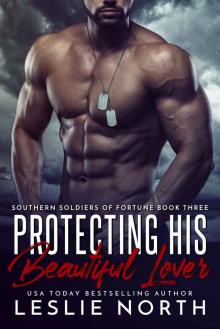 Protecting His Beautiful Lover (Southern Soldiers of Fortune Book 3)
Protecting His Beautiful Lover (Southern Soldiers of Fortune Book 3)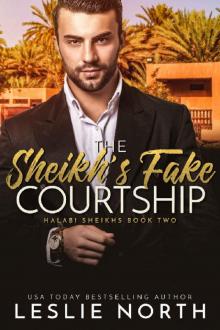 The Sheikh's Fake Courtship (Halabi Sheikhs Book 2)
The Sheikh's Fake Courtship (Halabi Sheikhs Book 2)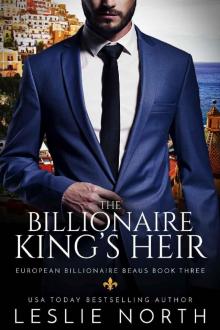 The Billionaire King’s Heir (European Billionaire Beaus Book 3)
The Billionaire King’s Heir (European Billionaire Beaus Book 3)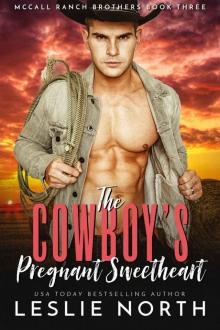 The Cowboy’s Pregnant Sweetheart (McCall Ranch Brothers Book 3)
The Cowboy’s Pregnant Sweetheart (McCall Ranch Brothers Book 3)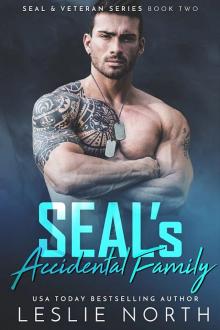 SEAL’s Accidental Family: SEAL & Veteran Series: Book Two
SEAL’s Accidental Family: SEAL & Veteran Series: Book Two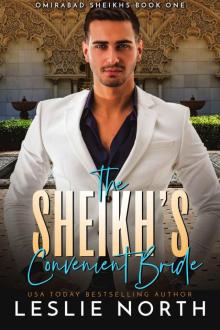 The Sheikh’s Convenient Bride (Omirabad Sheikhs Book 1)
The Sheikh’s Convenient Bride (Omirabad Sheikhs Book 1) Guarding the Single Mother (SEAL Endgame Book 1)
Guarding the Single Mother (SEAL Endgame Book 1)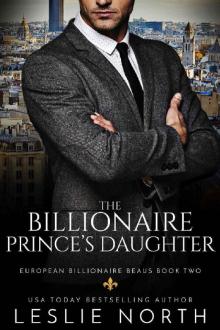 The Billionaire Prince’s Daughter (European Billionaire Beaus Book 2)
The Billionaire Prince’s Daughter (European Billionaire Beaus Book 2)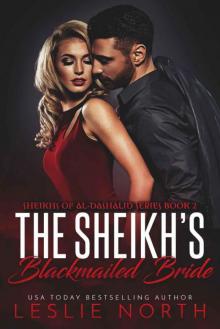 The Sheikh’s Blackmailed Bride (Sheikhs of Al-Dashalid Book 2)
The Sheikh’s Blackmailed Bride (Sheikhs of Al-Dashalid Book 2)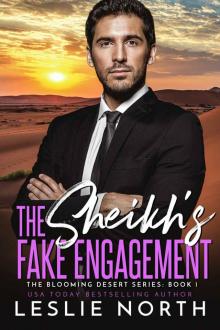 The Sheikh’s Fake Engagement (The Blooming Desert Series Book 1)
The Sheikh’s Fake Engagement (The Blooming Desert Series Book 1)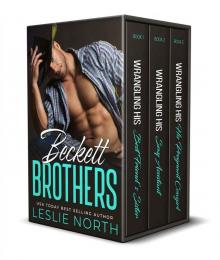 Beckett Brothers: The Complete Series
Beckett Brothers: The Complete Series The Sheikh's Untameable Lover (The Tazeem Twins Series Book 4)
The Sheikh's Untameable Lover (The Tazeem Twins Series Book 4)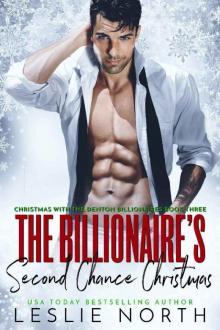 The Billionaire’s Second Chance Christmas (Christmas with the Denton Billionaires Book 3)
The Billionaire’s Second Chance Christmas (Christmas with the Denton Billionaires Book 3)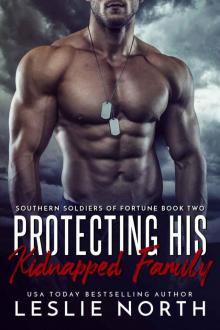 Protecting His Kidnapped Family (Southern Soldiers of Fortune Book 2)
Protecting His Kidnapped Family (Southern Soldiers of Fortune Book 2)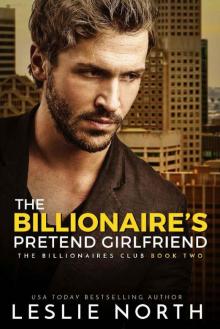 The Billionaire’s Pretend Girlfriend (The Billionaires Club Book 2)
The Billionaire’s Pretend Girlfriend (The Billionaires Club Book 2)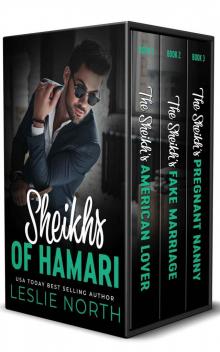 Sheikhs of Hamari: The Complete Series
Sheikhs of Hamari: The Complete Series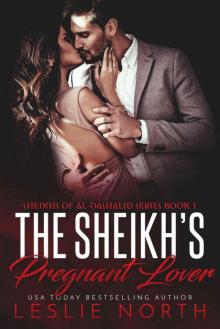 The Sheikh’s Pregnant Lover (Sheikhs of Al-Dashalid Book 1)
The Sheikh’s Pregnant Lover (Sheikhs of Al-Dashalid Book 1)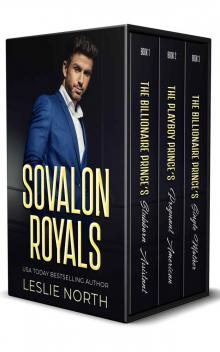 Sovalon Royals: The Complete Series
Sovalon Royals: The Complete Series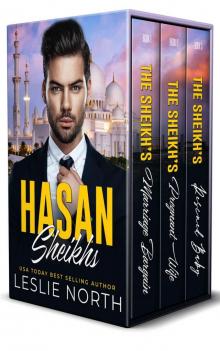 Hasan Sheikhs: The Complete Series
Hasan Sheikhs: The Complete Series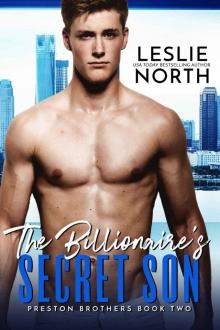 The Billionaire’s Secret Son (Preston Brothers Book 2)
The Billionaire’s Secret Son (Preston Brothers Book 2)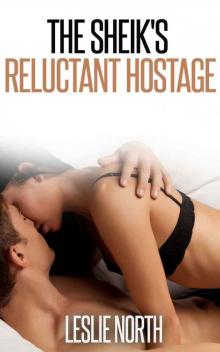 The Sheik's Reluctant Hostage (The Quabeca Sheiks Series Book 2)
The Sheik's Reluctant Hostage (The Quabeca Sheiks Series Book 2)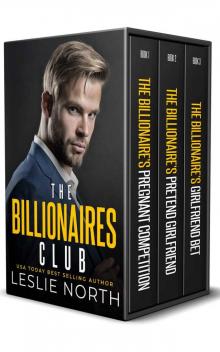 The Billionaires Club- The Complete Series
The Billionaires Club- The Complete Series The Sheikh’s Pregnant Love: The Karawi Sheikhs Series Book Three
The Sheikh’s Pregnant Love: The Karawi Sheikhs Series Book Three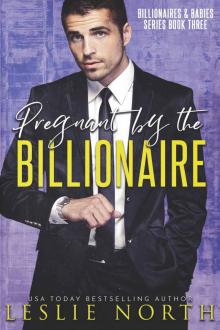 Pregnant by the Billionaire (Billionaires & Babies Book 3)
Pregnant by the Billionaire (Billionaires & Babies Book 3) The Sheikh's Surprise Twins (Qadir Sheikhs Book 1)
The Sheikh's Surprise Twins (Qadir Sheikhs Book 1)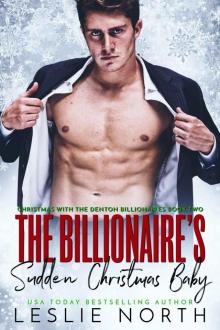 The Billionaire’s Sudden Christmas Baby (Christmas With the Denton Billionaires Book 2)
The Billionaire’s Sudden Christmas Baby (Christmas With the Denton Billionaires Book 2)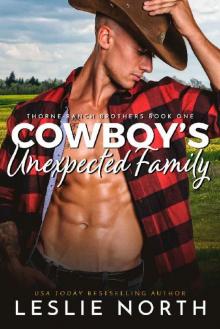 Cowboy's Unexpected Family (Thorne Ranch Brothers Book 1)
Cowboy's Unexpected Family (Thorne Ranch Brothers Book 1)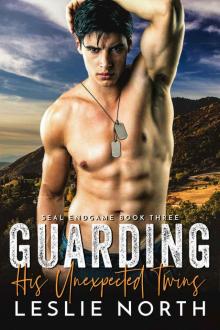 Guarding His Unexpected Twins (SEAL Endgame Book 3)
Guarding His Unexpected Twins (SEAL Endgame Book 3) SEAL & Veteran Series: The Complete Series
SEAL & Veteran Series: The Complete Series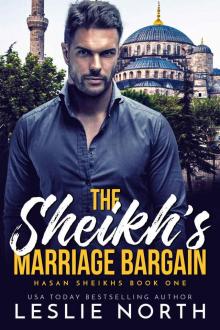 The Sheikh's Marriage Bargain (Hasan Sheikhs Book 1)
The Sheikh's Marriage Bargain (Hasan Sheikhs Book 1)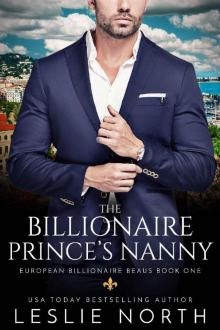 The Billionaire Prince’s Nanny (European Billionaire Beaus Book 1)
The Billionaire Prince’s Nanny (European Billionaire Beaus Book 1)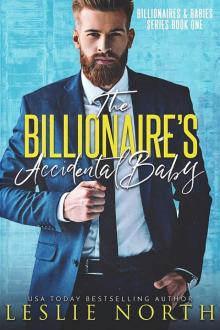 The Billionaire’s Accidental Baby: Billionaires & Babies Book One
The Billionaire’s Accidental Baby: Billionaires & Babies Book One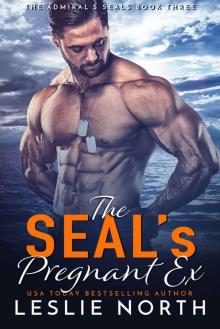 The SEAL’s Pregnant Ex (The Admiral’s SEALs Book 3)
The SEAL’s Pregnant Ex (The Admiral’s SEALs Book 3)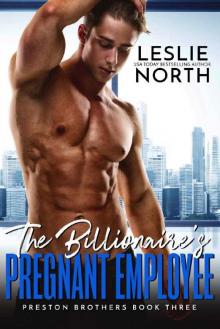 The Billionaire’s Pregnant Employee (Preston Brothers Book 3)
The Billionaire’s Pregnant Employee (Preston Brothers Book 3)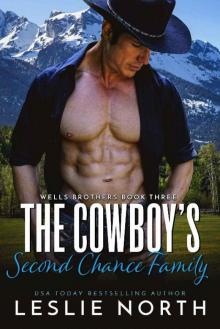 The Cowboy’s Second Chance Family (Wells Brothers Book 3)
The Cowboy’s Second Chance Family (Wells Brothers Book 3)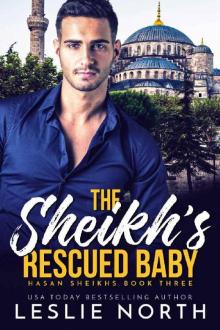 The Sheikh’s Rescued Baby (Hasan Sheikhs Book 3)
The Sheikh’s Rescued Baby (Hasan Sheikhs Book 3)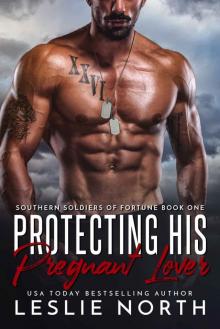 Protecting His Pregnant Lover (Southern Soldiers of Fortune Book 1)
Protecting His Pregnant Lover (Southern Soldiers of Fortune Book 1)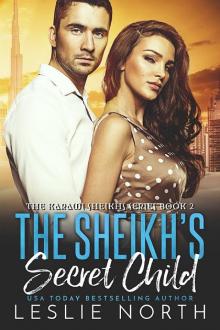 The Sheikh’s Secret Child: The Karawi Sheikhs Series Book Two
The Sheikh’s Secret Child: The Karawi Sheikhs Series Book Two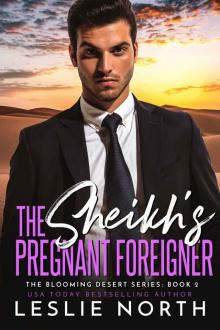 The Sheikh’s Pregnant Foreigner
The Sheikh’s Pregnant Foreigner Sheikhs of Al-Dashalid: The Complete Series
Sheikhs of Al-Dashalid: The Complete Series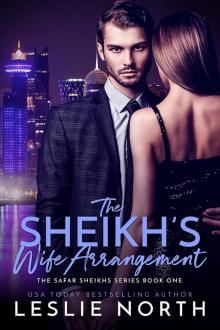 The Sheikh’s Wife Arrangement: The Safar Sheikhs Series Book One
The Sheikh’s Wife Arrangement: The Safar Sheikhs Series Book One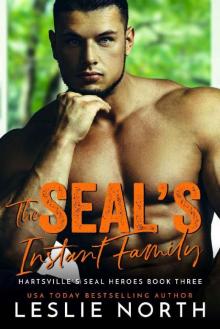 The SEAL’s Instant Family
The SEAL’s Instant Family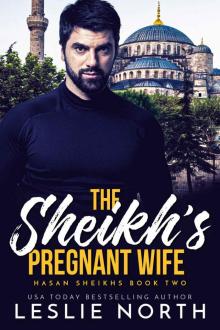 The Sheikh’s Pregnant Wife (Hasan Sheikhs Book 2)
The Sheikh’s Pregnant Wife (Hasan Sheikhs Book 2)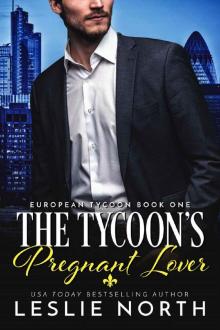 The Tycoon’s Pregnant Lover (European Tycoon Book 1)
The Tycoon’s Pregnant Lover (European Tycoon Book 1)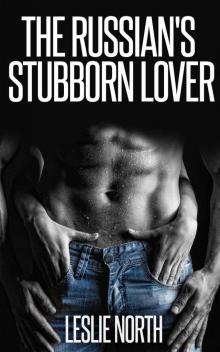 The Russian's Stubborn Lover (The Fedosov Family Series Book 1)
The Russian's Stubborn Lover (The Fedosov Family Series Book 1)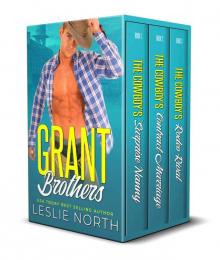 Grant Brothers Series: The Complete Series
Grant Brothers Series: The Complete Series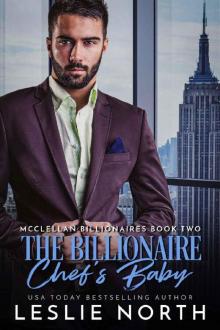 The Billionaire Chef’s Baby (McClellan Billionaires Book 2)
The Billionaire Chef’s Baby (McClellan Billionaires Book 2)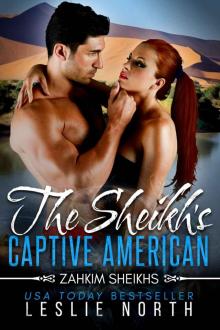 The Sheikh's Captive American (Zahkim Sheikhs Series Book 1)
The Sheikh's Captive American (Zahkim Sheikhs Series Book 1)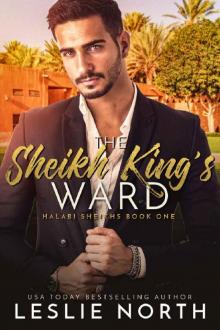 The Sheikh King's Ward (Halabi Sheikhs Book 1)
The Sheikh King's Ward (Halabi Sheikhs Book 1) The Sheikh's Christmas Baby
The Sheikh's Christmas Baby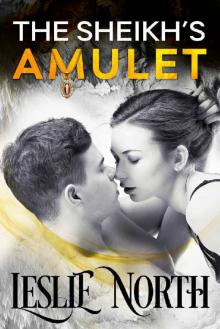 The Sheikh's Amulet (Sheikh's Wedding Bet Series Book 3)
The Sheikh's Amulet (Sheikh's Wedding Bet Series Book 3) The Sheikh’s Accidental Heir (Sharjah Sheikhs Book 2)
The Sheikh’s Accidental Heir (Sharjah Sheikhs Book 2)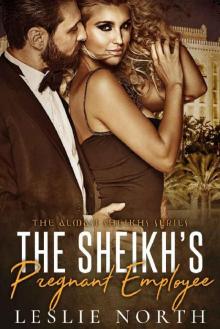 The Sheikh's Pregnant Employee
The Sheikh's Pregnant Employee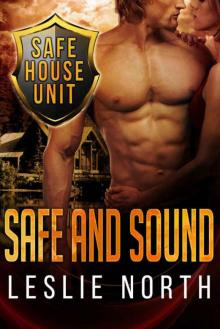 Safe and Sound (The Safe House Series Book 3)
Safe and Sound (The Safe House Series Book 3)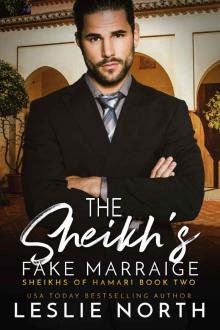 The Sheikh’s Fake Marriage (Sheikhs of Hamari Book 2)
The Sheikh’s Fake Marriage (Sheikhs of Hamari Book 2)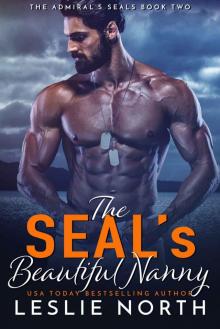 The SEAL’s Beautiful Nanny (The Admiral’s SEALs Book 2)
The SEAL’s Beautiful Nanny (The Admiral’s SEALs Book 2)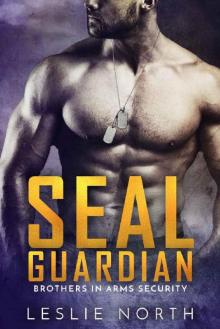 SEAL Guardian (Brothers In Arms Book 3)
SEAL Guardian (Brothers In Arms Book 3)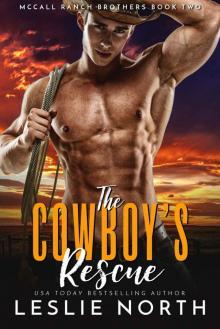 The Cowboy’s Rescue (McCall Ranch Brothers Book 2)
The Cowboy’s Rescue (McCall Ranch Brothers Book 2)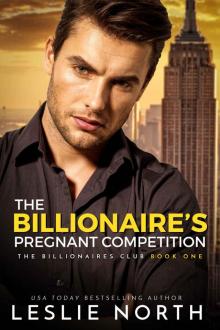 The Billionaire's Pregnant Competition (The Billionaires Club Book 1)
The Billionaire's Pregnant Competition (The Billionaires Club Book 1)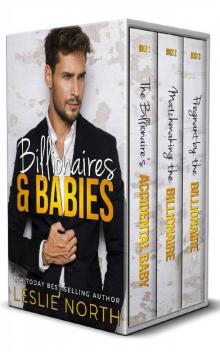 Billionaires & Babies: The Complete Series
Billionaires & Babies: The Complete Series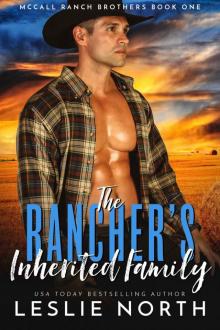 The Rancher’s Inherited Family (McCall Ranch Brothers Book 1)
The Rancher’s Inherited Family (McCall Ranch Brothers Book 1) The Sheikh's Stubborn Lover (The Adjalane Sheikhs Series Book 2)
The Sheikh's Stubborn Lover (The Adjalane Sheikhs Series Book 2)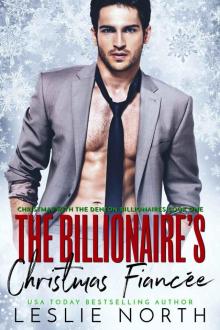 The Billionaire’s Christmas Fiancée (Christmas with the Denton Billionaires Book 1)
The Billionaire’s Christmas Fiancée (Christmas with the Denton Billionaires Book 1)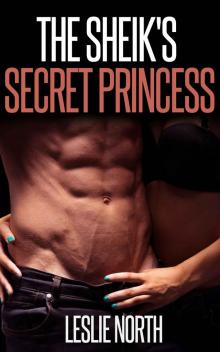 The Sheikh's Secret Princess
The Sheikh's Secret Princess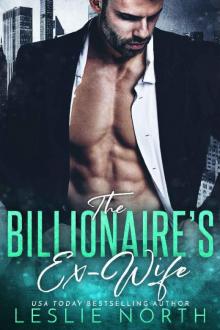 The Billionaire's Ex-Wife (Jameson Brothers Book 1)
The Billionaire's Ex-Wife (Jameson Brothers Book 1)![Ride with the SEAL_Norse Security [Book One] Read online](http://i1.bookreadfree.com/i/03/20/ride_with_the_seal_norse_security_book_one_preview.jpg) Ride with the SEAL_Norse Security [Book One]
Ride with the SEAL_Norse Security [Book One]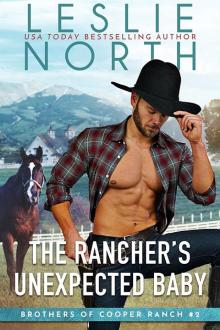 The Rancher’s Unexpected Baby: Brothers of Cooper Ranch Book Two
The Rancher’s Unexpected Baby: Brothers of Cooper Ranch Book Two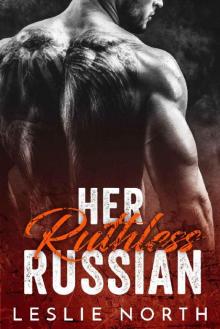 Her Ruthless Russian (Karev Brothers Book 1)
Her Ruthless Russian (Karev Brothers Book 1)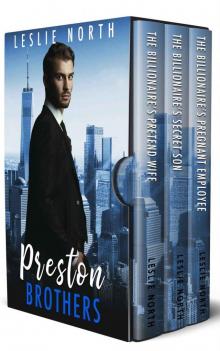 Preston Brothers The Complete Series
Preston Brothers The Complete Series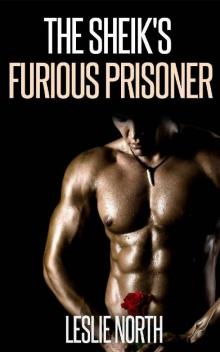 The Sheikh's Furious Prisoner
The Sheikh's Furious Prisoner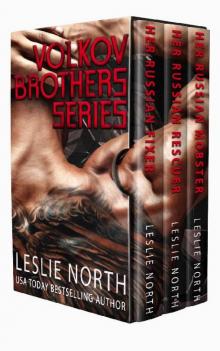 The Volkov Brothers Series: The Complete Series
The Volkov Brothers Series: The Complete Series A Sheikh for Christmas
A Sheikh for Christmas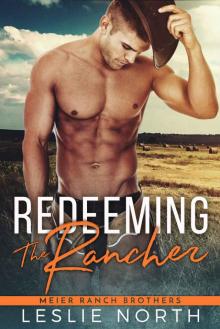 Redeeming the Rancher
Redeeming the Rancher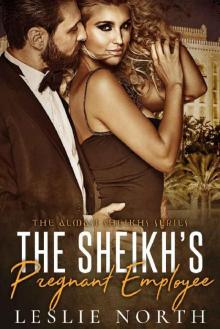 The Sheikh's Pregnant Employee (Almasi Sheikhs Book 3)
The Sheikh's Pregnant Employee (Almasi Sheikhs Book 3)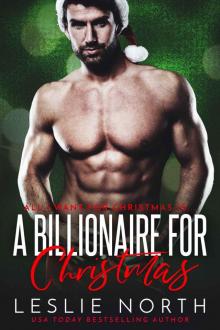 A Billionaire for Christmas
A Billionaire for Christmas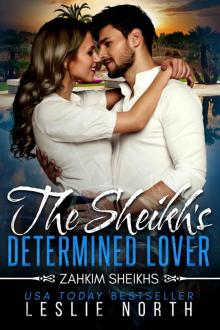 The Sheikh's Determined Lover
The Sheikh's Determined Lover The Sheikh's Reluctant American (The Adjalane Sheikhs #3)
The Sheikh's Reluctant American (The Adjalane Sheikhs #3)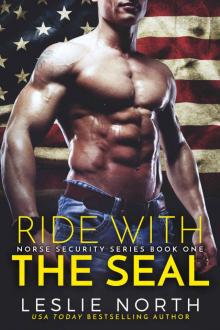 Ride with the SEAL
Ride with the SEAL Zahkim Sheikhs Series: The Complete Series
Zahkim Sheikhs Series: The Complete Series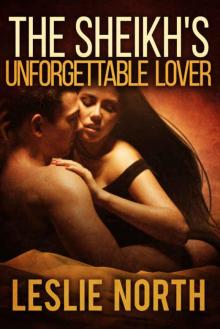 The Sheikh's Unforgettable Lover (The Sharqi Sheikhs Series Book 1)
The Sheikh's Unforgettable Lover (The Sharqi Sheikhs Series Book 1)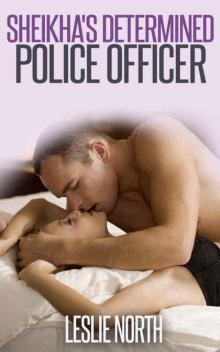 Sheikha's Determined Police Officer (Botros Brothers Series Book 4)
Sheikha's Determined Police Officer (Botros Brothers Series Book 4)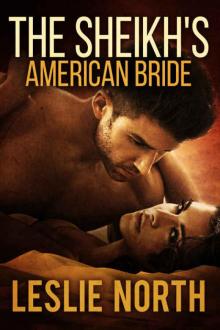 The Sheikh's American Bride (The Sharqi Sheikhs Series Book 2)
The Sheikh's American Bride (The Sharqi Sheikhs Series Book 2)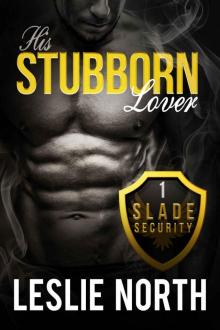 His Stubborn Lover
His Stubborn Lover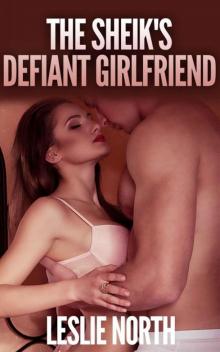 The Sheikh's Defiant Girlfriend (The Botros Brothers Series)
The Sheikh's Defiant Girlfriend (The Botros Brothers Series)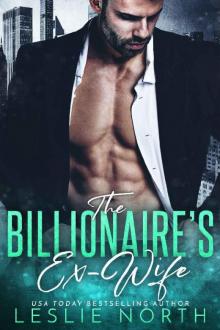 The Billionaire's Ex-Wife
The Billionaire's Ex-Wife The Russian's Secret Child (The Fedosov Family Series)
The Russian's Secret Child (The Fedosov Family Series)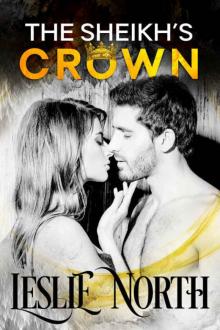 The Sheikh's Crown (Sheikh's Wedding Bet Series Book 2)
The Sheikh's Crown (Sheikh's Wedding Bet Series Book 2)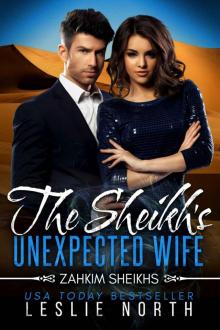 The Sheikh's Unexpected Wife
The Sheikh's Unexpected Wife The Sheikh’s Secret Son (Sharjah Sheikhs Book 3)
The Sheikh’s Secret Son (Sharjah Sheikhs Book 3)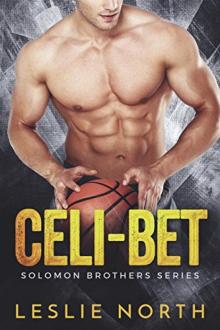 Celi-Bet (Solomon Brothers #2)
Celi-Bet (Solomon Brothers #2)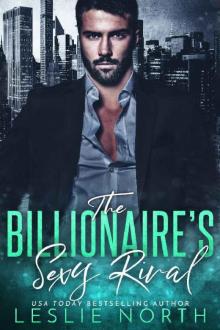 The Billionaire's Sexy Rival (Jameson Brothers Book 3)
The Billionaire's Sexy Rival (Jameson Brothers Book 3) The Sheikh's Christmas Baby (Shadid Sheikhs Series Book 3)
The Sheikh's Christmas Baby (Shadid Sheikhs Series Book 3) Royal Treatment
Royal Treatment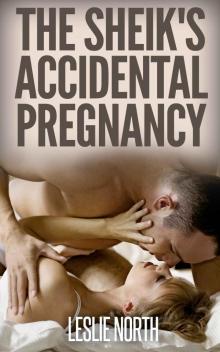 The Sheik's Accidental Pregnancy
The Sheik's Accidental Pregnancy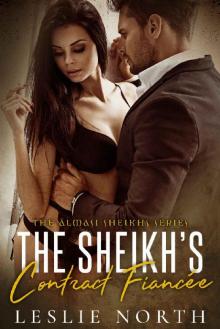 The Sheikh’s Contract Fiancée (Almasi Sheikhs Book 1)
The Sheikh’s Contract Fiancée (Almasi Sheikhs Book 1)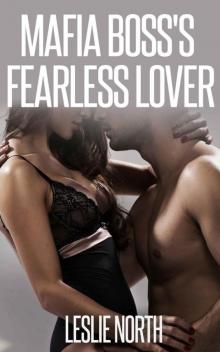 Mafia Boss's Fearless Lover (The Karzhov Crime Family series Book 1)
Mafia Boss's Fearless Lover (The Karzhov Crime Family series Book 1) The Sheikh’s Surprise Heir: The Karawi Sheikhs Series Book One
The Sheikh’s Surprise Heir: The Karawi Sheikhs Series Book One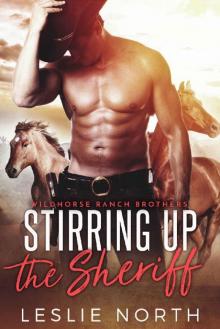 Stirring up the Sheriff (Wildhorse Ranch Brothers Book 3)
Stirring up the Sheriff (Wildhorse Ranch Brothers Book 3)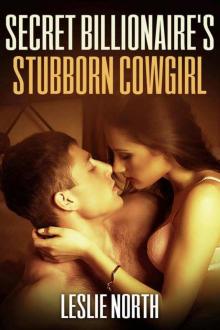 Secret Billionaire's Stubborn Cowgirl (The Secret Billionaires, #1)
Secret Billionaire's Stubborn Cowgirl (The Secret Billionaires, #1)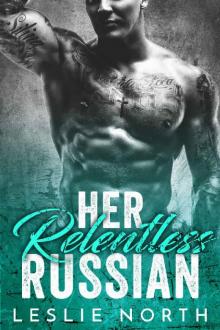 Her Relentless Russian (Karev Brothers Book 3)
Her Relentless Russian (Karev Brothers Book 3)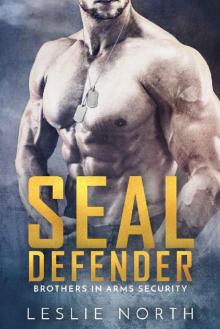 SEAL Defender (Brothers In Arms Book 1)
SEAL Defender (Brothers In Arms Book 1)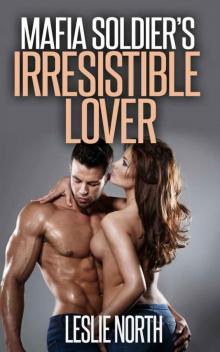 Mafia Soldier's Irresistible Lover (The Karzhov Crime Family Series Book 3)
Mafia Soldier's Irresistible Lover (The Karzhov Crime Family Series Book 3)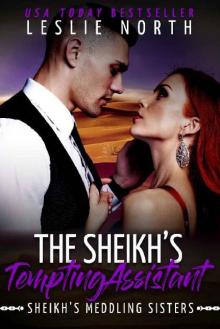 The Sheikh's Tempting Assistant
The Sheikh's Tempting Assistant The Sheik's Desires Boxset
The Sheik's Desires Boxset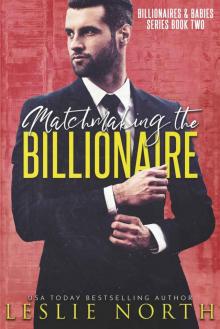 Matchmaking the Billionaire (Billionaires & Babies Book 2)
Matchmaking the Billionaire (Billionaires & Babies Book 2)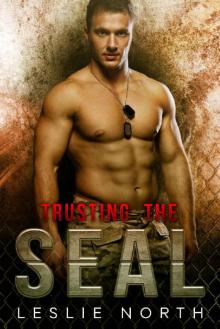 Trusting the SEAL (Saving the SEALs Series Book 3)
Trusting the SEAL (Saving the SEALs Series Book 3) The Sheikh's Christmas Present (Shadid Sheikhs Series Book 2)
The Sheikh's Christmas Present (Shadid Sheikhs Series Book 2)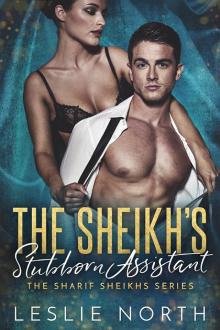 The Sheikh’s Stubborn Assistant
The Sheikh’s Stubborn Assistant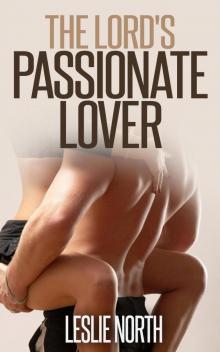 The Lord's Passionate Lover (The Royals of Monaco, #3)
The Lord's Passionate Lover (The Royals of Monaco, #3) The Sheikh’s Forced Bride (The Sharjah Sheikhs Series Book 1)
The Sheikh’s Forced Bride (The Sharjah Sheikhs Series Book 1)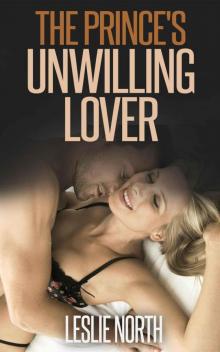 The Prince's Unwilling Lover (The Royals of Monaco Book 1)
The Prince's Unwilling Lover (The Royals of Monaco Book 1) The Sheikh’s Pregnant Fake Wife
The Sheikh’s Pregnant Fake Wife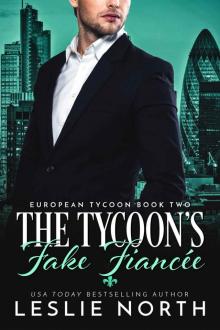 The Tycoon’s Fake Fiancée (European Tycoon Book 2)
The Tycoon’s Fake Fiancée (European Tycoon Book 2) Italian Billionaire’s Stubborn Lover
Italian Billionaire’s Stubborn Lover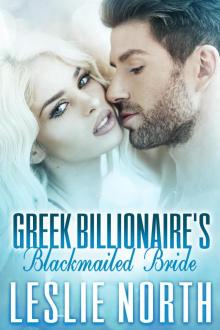 Greek Billionaire's Blackmailed Bride (The Rosso Family Series, #1)
Greek Billionaire's Blackmailed Bride (The Rosso Family Series, #1) The Sheikh's Christmas Maid
The Sheikh's Christmas Maid The Sheikh's Christmas Maid (Shadid Sheikhs Series Book 1)
The Sheikh's Christmas Maid (Shadid Sheikhs Series Book 1) Italian Billionaire’s Unexpected Lover
Italian Billionaire’s Unexpected Lover The Sheikh's Secret Bride
The Sheikh's Secret Bride The Sheikh's Unruly Lover (Almasi Sheikhs Book 2)
The Sheikh's Unruly Lover (Almasi Sheikhs Book 2)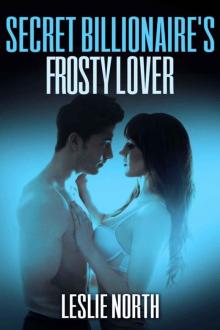 Secret Billionaire's Frosty Lover
Secret Billionaire's Frosty Lover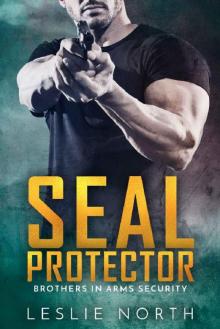 SEAL Protector (Brothers In Arms Book 2)
SEAL Protector (Brothers In Arms Book 2)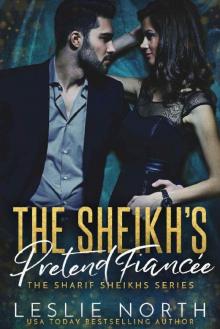 The Sheikh’s Pretend Fiancée
The Sheikh’s Pretend Fiancée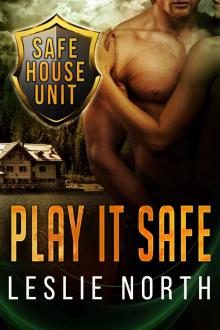 Play It Safe (The Safe House Series Book 2)
Play It Safe (The Safe House Series Book 2)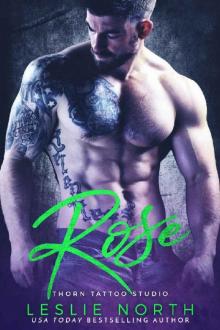 Rose (Thorn Tattoo Studio Book 1)
Rose (Thorn Tattoo Studio Book 1)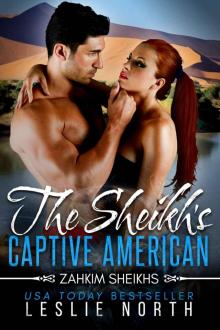 The Sheikh's Captive American
The Sheikh's Captive American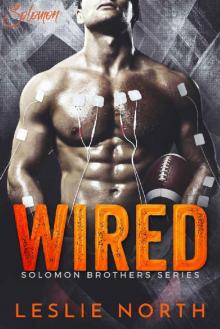 Wired (The Solomon Brothers Series Book 1)
Wired (The Solomon Brothers Series Book 1)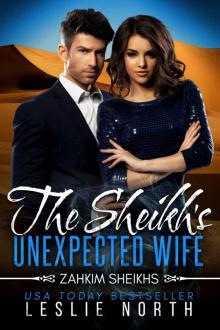 The Sheikh's Unexpected Wife (Zahkim Sheikhs Series Book 3)
The Sheikh's Unexpected Wife (Zahkim Sheikhs Series Book 3) The Romano Brothers Series
The Romano Brothers Series The Sheikh's Surprise Triplets (Azhar Sheikhs Book 3)
The Sheikh's Surprise Triplets (Azhar Sheikhs Book 3)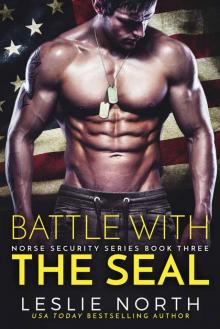 Battle with the SEAL
Battle with the SEAL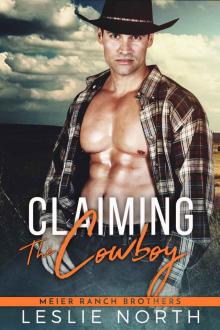 Claiming The Cowboy
Claiming The Cowboy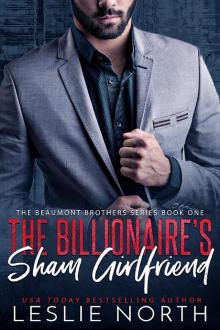 The Billionaire’s Sham Girlfriend: The Beaumont Brothers Book One
The Billionaire’s Sham Girlfriend: The Beaumont Brothers Book One The Sheikh's Unruly Lover
The Sheikh's Unruly Lover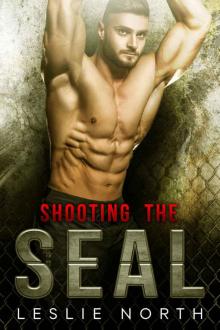 Shooting the SEAL (Saving the SEALs Series Book 1)
Shooting the SEAL (Saving the SEALs Series Book 1)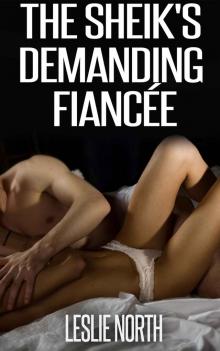 The Sheikh's Demanding Fiancée (The Botros Brothers Series)
The Sheikh's Demanding Fiancée (The Botros Brothers Series)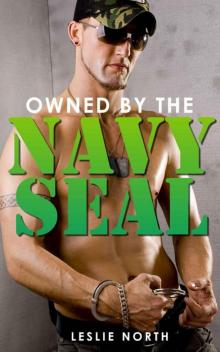 Owned by the Navy Seal
Owned by the Navy Seal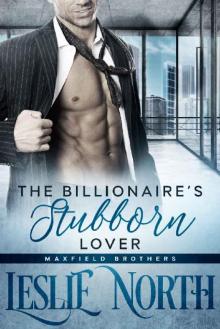 The Billionaire’s Stubborn Lover (The Maxfield Brothers Series Book 3)
The Billionaire’s Stubborn Lover (The Maxfield Brothers Series Book 3) The Sheikh's Fiery Lover (The Tazeem Twins Series Book 2)
The Sheikh's Fiery Lover (The Tazeem Twins Series Book 2)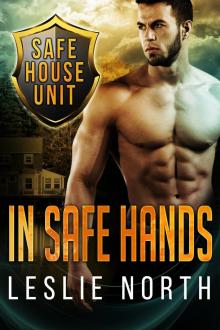 In Safe Hands (The Safe House Series Book 1)
In Safe Hands (The Safe House Series Book 1)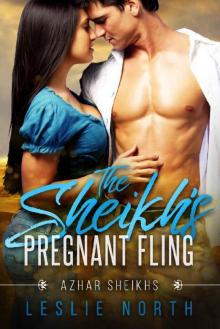 The Sheikh's Pregnant Fling (Azhar Sheikhs Book 2)
The Sheikh's Pregnant Fling (Azhar Sheikhs Book 2) The Sheikh's Christmas Present
The Sheikh's Christmas Present Royal Service
Royal Service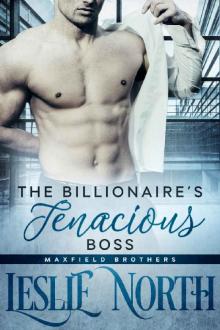 The Billionaire’s Tenacious Boss (The Maxfield Brothers Series Book 1)
The Billionaire’s Tenacious Boss (The Maxfield Brothers Series Book 1)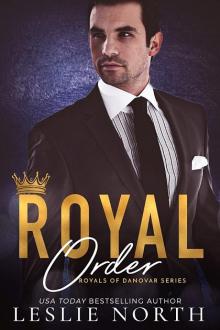 Royal Order
Royal Order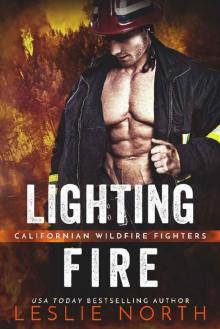 Lighting Fire
Lighting Fire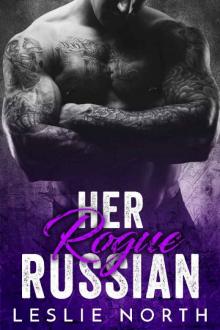 Her Rogue Russian (Karev Brothers Book 2)
Her Rogue Russian (Karev Brothers Book 2)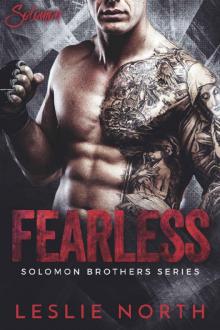 Fearless (The Solomon Brothers Series Book 3)
Fearless (The Solomon Brothers Series Book 3)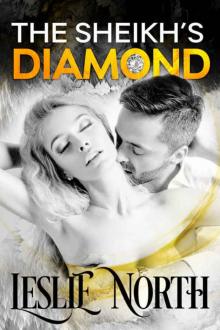 The Sheikh's Diamond (Sheikh's Wedding Bet Series Book 1)
The Sheikh's Diamond (Sheikh's Wedding Bet Series Book 1)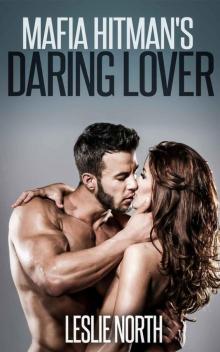 Mafia Hitman's Daring Lover
Mafia Hitman's Daring Lover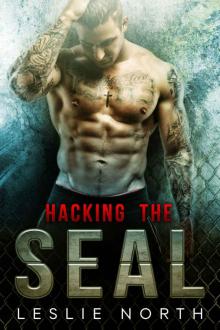 Hacking the SEAL (Saving the SEALs Series Book 2)
Hacking the SEAL (Saving the SEALs Series Book 2)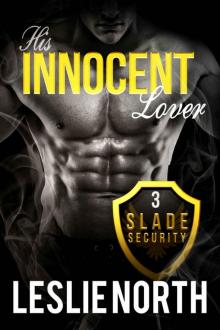 His Innocent Lover (Slade Security Team Series Book 3)
His Innocent Lover (Slade Security Team Series Book 3)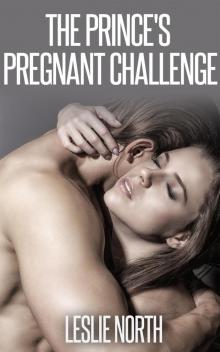 The Prince's Pregnant Challenge (The Royals of Monaco, #2)
The Prince's Pregnant Challenge (The Royals of Monaco, #2)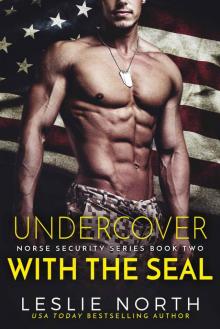 Undercover with the SEAL
Undercover with the SEAL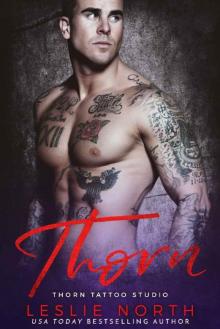 Thorn (Thorn Tattoo Studio Book 2)
Thorn (Thorn Tattoo Studio Book 2)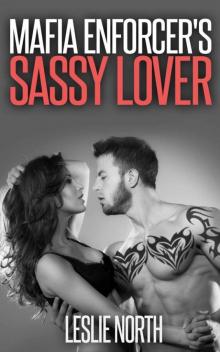 Mafia Enforcer's Sassy Lover (The Karzhov Crime Family Series Book 4)
Mafia Enforcer's Sassy Lover (The Karzhov Crime Family Series Book 4)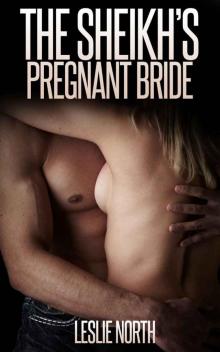 The Sheikh's Pregnant Bride (The Jawhara Sheikhs Series Book 1)
The Sheikh's Pregnant Bride (The Jawhara Sheikhs Series Book 1)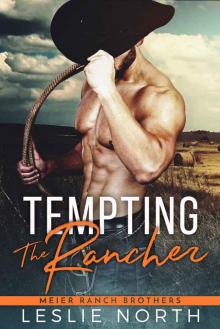 Tempting the Rancher
Tempting the Rancher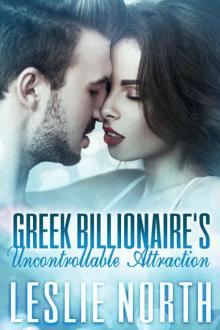 Greek Billionaire's Uncontrollable Attraction (The Rosso Family Series Book 3)
Greek Billionaire's Uncontrollable Attraction (The Rosso Family Series Book 3)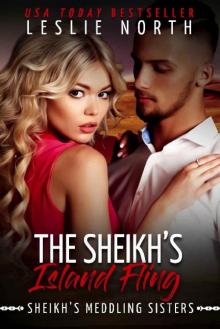 The Sheikh’s Island Fling
The Sheikh’s Island Fling![Battle with the SEAL_Norse Security [Book Three] Read online](http://i1.bookreadfree.com/i2/04/11/battle_with_the_seal_norse_security_book_three_preview.jpg) Battle with the SEAL_Norse Security [Book Three]
Battle with the SEAL_Norse Security [Book Three]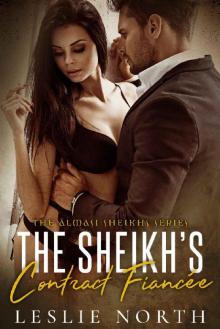 The Sheikh’s Contract Fiancée
The Sheikh’s Contract Fiancée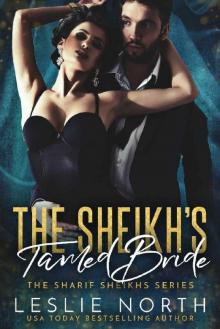 The Sheikh’s Tamed Bride
The Sheikh’s Tamed Bride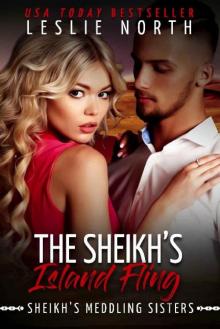 The Sheikh’s Island Fling_Sheikh's Meddling Sisters_Book Two
The Sheikh’s Island Fling_Sheikh's Meddling Sisters_Book Two The Sheikh's Troublesome Bride
The Sheikh's Troublesome Bride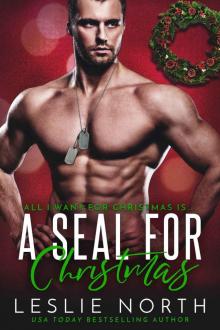 A SEAL for Christmas
A SEAL for Christmas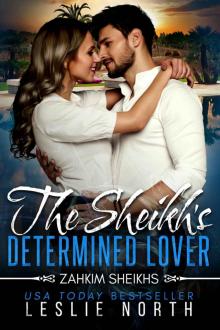 The Sheikh's Determined Lover (Zahkim Sheikhs Series Book 2)
The Sheikh's Determined Lover (Zahkim Sheikhs Series Book 2) The Sheikh’s Fake Fiancée (Azhar Sheikhs Book 1)
The Sheikh’s Fake Fiancée (Azhar Sheikhs Book 1)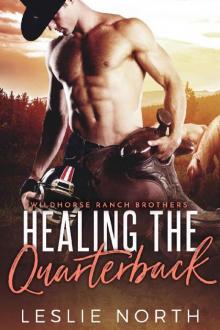 Healing the Quarterback (Wildhorse Ranch Brothers Book 2)
Healing the Quarterback (Wildhorse Ranch Brothers Book 2)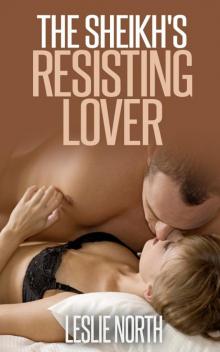 The Sheikh's Resisting Lover (The Tazeem Twins Series Book 3)
The Sheikh's Resisting Lover (The Tazeem Twins Series Book 3)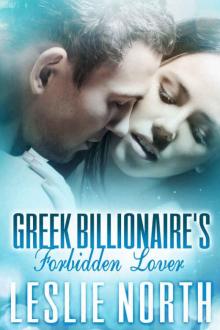 Greek Billionaire's Forbidden Lover (The Rosso Family Series Book 2)
Greek Billionaire's Forbidden Lover (The Rosso Family Series Book 2)![Undercover with the SEAL_Norse Security [Book Two] Read online](http://i1.bookreadfree.com/i2/04/11/undercover_with_the_seal_norse_security_book_two_preview.jpg) Undercover with the SEAL_Norse Security [Book Two]
Undercover with the SEAL_Norse Security [Book Two]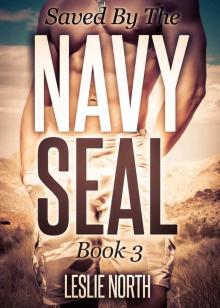 Rescued by the Navy Seal
Rescued by the Navy Seal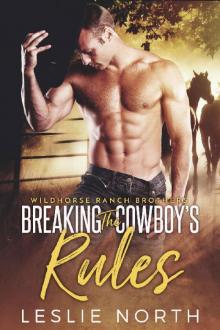 Breaking the Cowboy's Rules (Wildhorse Ranch Brothers Book 1)
Breaking the Cowboy's Rules (Wildhorse Ranch Brothers Book 1)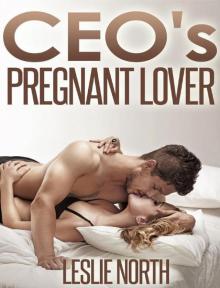 CEO's Pregnant Lover
CEO's Pregnant Lover Royals of Danovar: The Complete Series
Royals of Danovar: The Complete Series The Sheikha's Forbidden Lover (The Tazeem Twins Series Book 5)
The Sheikha's Forbidden Lover (The Tazeem Twins Series Book 5)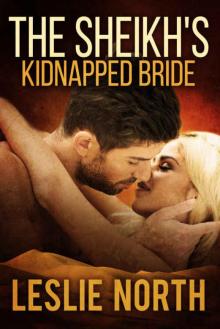 The Sheikh's Kidnapped Bride (The Sharqi Sheikhs Series Book 3)
The Sheikh's Kidnapped Bride (The Sharqi Sheikhs Series Book 3)